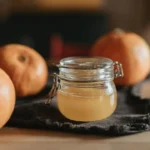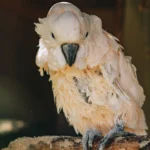
Electrolyte Solutions: A Must-Have for Emergency Situations in Parrots
As a parrot owner, it’s important to be prepared for emergency situations, including dehydration caused by illness, injury, or heat stress. In such cases, an electrolyte solution can be a lifesaver for your bird.
Electrolyte solutions contain minerals and salts that are essential for hydration, and they can help restore the balance of electrolytes in the bird’s body. They can also help to support the bird’s immune system and promote healing [1].
It’s important to note that not all electrolyte solutions are created equal, and some commercial products may contain additives or preservatives that are not suitable for birds. As a result, it’s best to consult with a veterinarian and choose an electrolyte solution that is specifically formulated for birds.
Jump To Section
When to administer electrolytes to your parrot
Parrot owners should consider providing electrolyte solutions to their birds in several situations, including:
- During Illness: If your parrot is ill and showing symptoms of dehydration, electrolyte solutions can help to restore the balance of minerals and salts in the body and prevent dehydration.
- After Surgery: Parrots that have undergone surgery may require electrolyte solutions to help support the healing process and prevent dehydration.
- During Hot Weather: High temperatures can cause parrots to become dehydrated quickly, especially if they are outdoors or in a poorly ventilated area. In such cases, providing electrolyte solutions can help prevent dehydration and heat stress.
- During Travel: If you are traveling with your parrot, electrolyte solutions can help prevent dehydration during long trips or in stressful situations.
It’s important to note that electrolyte solutions should not be given to parrots on a regular basis, as this can disrupt the balance of electrolytes in the body. Additionally, electrolyte solutions should not be used as a substitute for professional medical care or treatment.
If you are unsure whether your parrot requires an electrolyte solution, it’s best to consult with a veterinarian. A veterinarian can help determine if an electrolyte solution is necessary and provide guidance on how to administer it safely and effectively.
Signs of dehydration in parrots
It is important for parrot owners to be able to recognize the signs of dehydration in their companion birds so they can take action to prevent further complications. Some common signs of dehydration in parrots include:
- Sunken eyes: Dehydrated parrots may have sunken or dull-looking eyes.
- Lethargy: Dehydrated parrots may appear weak, tired, or uninterested in their surroundings.
- Dry skin: Dehydrated parrots may have dry or flaky skin.
- Reduced appetite: They may show a lack of interest in food or refuse to eat altogether.
- Thick or discolored urates: Parrots that are dehydrated may have thicker or darker-colored urates.
- Reduced urination: Dehydrated parrots may produce less urine, which can result in dry droppings.
- Panting or open-mouth breathing: Parrots that are dehydrated may pant or breathe with their mouths open in an effort to cool down. This is often also a sign of heat exhaustion, after a parrot has been exposed to excessive heat.
If you notice any of these signs in your parrot, it’s important to take action to prevent further dehydration, including providing your bird with electrolyte solutions, ensuring they have access to fresh water at all times, and removing them from hot environments.
Administering electrolyte solutions to your bird
Adding an electrolyte solution to your first aid kit is a simple and effective way to ensure that you are prepared for emergency situations. It’s important to keep a supply of electrolyte solution on hand, along with instructions on how to use it. In some cases, an electrolyte solution may be given orally to the bird using a syringe, while in other cases, it may need to be administered subcutaneously (under the skin) by a veterinarian [2].
In conclusion, an electrolyte solution is a valuable addition to any parrot owner’s first aid kit. During emergency situations, electrolyte solutions can help prevent dehydration, support the bird’s immune system, and promote healing. By being prepared and having a supply of electrolyte solution on hand, parrot owners can help ensure the health and well-being of their feathered friends.
References
- American Federation of Aviculture. Dehydration and Emergency Treatment. Accessed March 7, 2023. https://www.afabirds.org/dehydration-emergency-treatment/
- Harrison GJ, Lightfoot T, eds. Clinical Avian Medicine. Palm Beach, FL: Spix Publishing; 2006.
- Rupley AE, Sari E, Barceló-Coblijn L. Clinical approach to fluid therapy in avian pediatrics. Journal of Exotic Pet Medicine. 2019;30:62-70. doi: 10.1053/j.jepm.2018.11.005.
- West G, Heard D. Clinical signs and differential diagnoses of illness in pet birds. In: West G, Heard D, Caulkett N, eds. Zoo Animal and Wildlife Immobilization and Anesthesia. 2nd ed. Ames, IA: Wiley-Blackwell; 2014: 178-194. doi: 10.1002/9781118824668.ch12.
Parrot Junkie www.parrotjunkie.com
Copyright © 2021-2024. All rights reserved.



Be the first to leave a comment